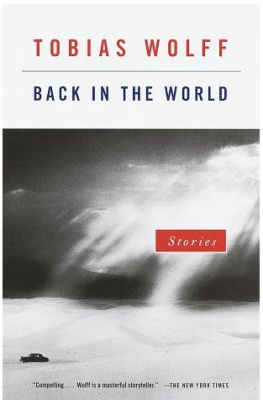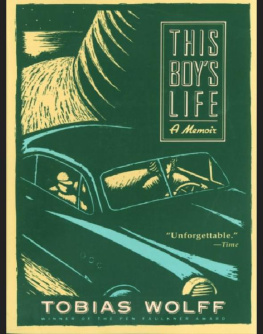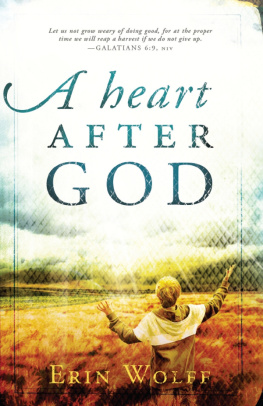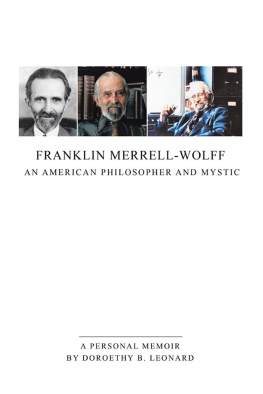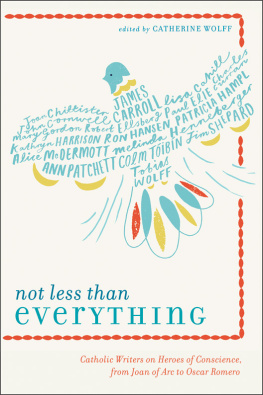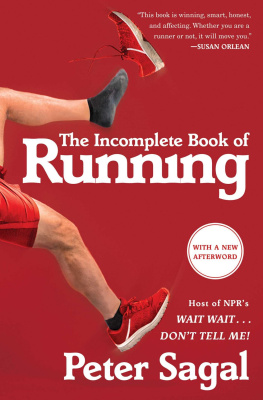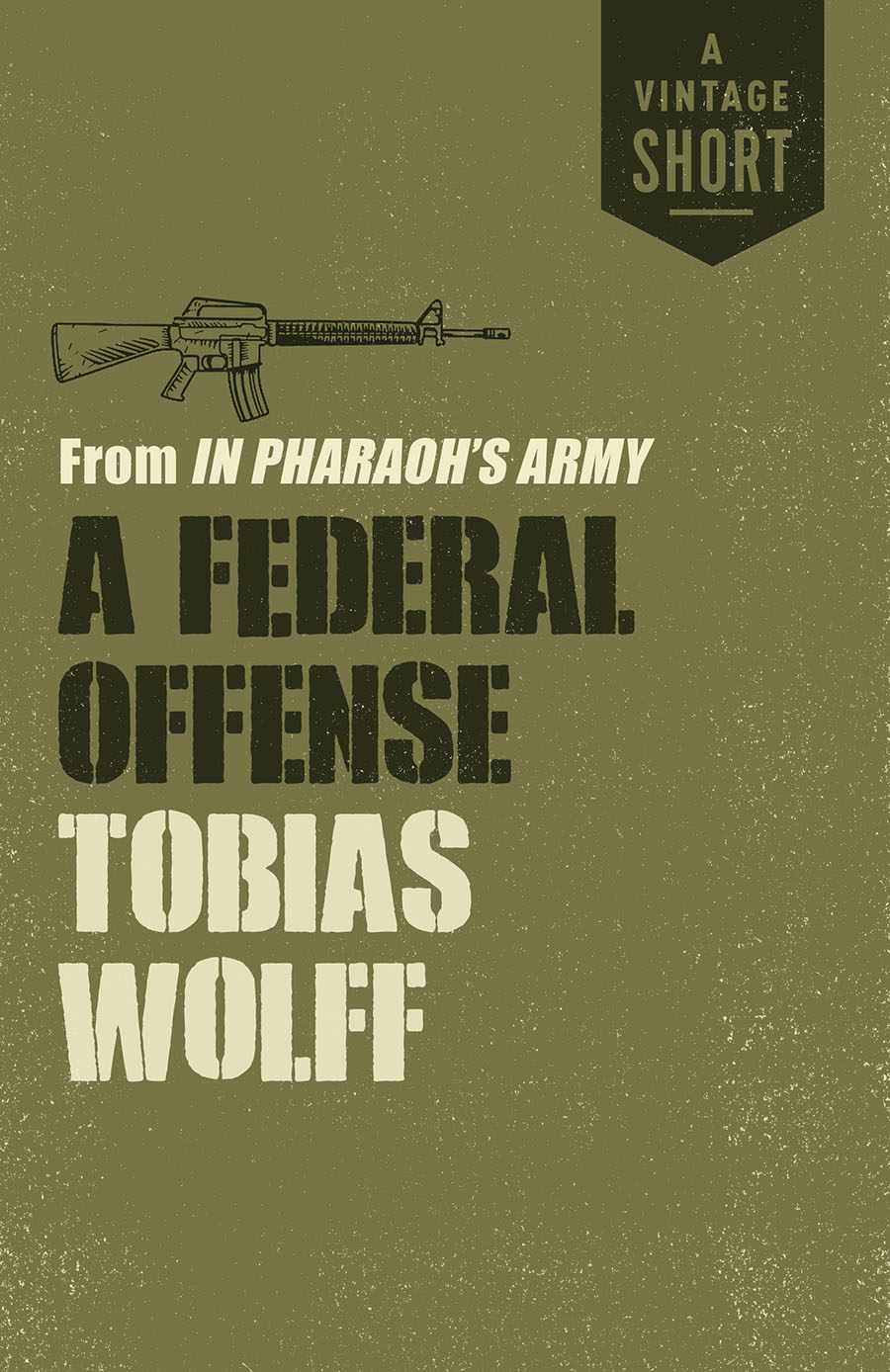Contents
A Federal Offense
from In Pharaohs Army
Tobias Wolff
A Vintage Short
Vintage Books
A Division of Penguin Random House LLC
New York
Copyright 1994 by Tobias Wolff
All rights reserved. Published in the United States by Vintage Books, a division of Penguin Random House LLC, New York, and in Canada by Random House of Canada, a division of Penguin Random House Canada Limited, Toronto. Originally published in hardcover as part of In Pharaohs Army in the United States by Alfred A. Knopf, a division of Penguin Random House LLC, New York, in 1994.
Vintage and colophon are registered trademarks of Penguin Random House LLC.
The Cataloging-in-Publication Data for In Pharaohs Army is available from the Library of Congress.
Vintage eShort ISBN 9780525562405
Series cover design by Cardon Webb
Cover image dezmond55/123RF
www.vintagebooks.com
v4.1
a
Tobias Wolff
Tobias Wolff lives in Northern California and teaches at Stanford University. He has received the Rea award for excellence in the short story, the Los Angeles Times Book Prize, and the PEN/Faulkner Award.
His memoir In Pharaohs Army and his story collections Back in the World and The Night in Question are available in Vintage editions, as is The Vintage Book of American Short Stories, which he edited.
B OOKS BY T OBIAS W OLFF
Old School
The Night in Question
In Pharaohs Army
This Boys Life
Back in the World
The Barracks Thief
In the Garden of North American Martyrs
J UST BEFORE Tet my father sent me a belated Christmas card in which he said he watched the Vietnam news every day and was damned proud of me. I knew he meant well, but I couldnt help wondering what he had in mind. What did he think I was doing over here? What would he like me to be doing? Something hush-hush, maybe, something understatedly brave and important as in the stories he used to tell, or imply, about flying with the RAF and serving with partisans just about everywhere. But maybe not. In fact I didnt know what he expected from me, or what to expect from him.
He had gotten out of prison a couple of years back while I was in Officer Candidate School. A friend of his from the old days found him an apartment in Manhattan Beach, and my father wrote me from there to send news of his release and simply to wish me well. There was no humbug in the letter, no talk of impending deals or bum raps. He said Geoffrey was helping him out every month and that was how hed gotten my address. Years had passed since Id heard from him or made any effort of my own to get in touch, and I was astounded to see his broad, outsized scrawl, the letters almost like ideograms, on the envelope. I sent back my own good wishes and thereafter we exchanged notes every six months or so.
When I was in language school my father wrote to propose that he come to Washington for a grand reunion. He could catch up with his boys, meet Priscilla and Vera, and pay his respects to our mother (he had either forgotten, or didnt care, that she had married again). He saw no reason, if he found Washington to his liking, why something couldnt be worked out with his parole board that would allow him to move there.
Geoffrey and I had a talk about it. His sense of humor was not on display. To him, the idea of the old man in Washington was a pit filled with man-eating possibilities. I could see his point. For once in his life he was solvent and in place, even, as book editor of the Washington Post, something of a personage in town, a favored ambassador from the trivial but charming realm of literature. Priscilla was expecting their first child in a few months.
Enter the old man. It was obvious to both of us how the play would go, we knew the script by heart: exotic cars paid for with rubber checks, stereos and Dunhill lighters charged to my boy over at the Post. Landlords, grocers, clothiers, purveyors of wine and spirits, loan sharks, all clamoring for justiceto Geoffrey. The whole thing would fall on him. It was unthinkable. But Geoffrey had thought about it; that was what made it hard for him. He had a lingering dream of somehow bringing the old man back into the family, and would have done just about anything to pull it off except let him destroy his life.
We declined our fathers offer to join us, and he took it like a sportnothing ventured, nothing gainedand said no more about it. But Id gotten interested in seeing him again, and after my orders for Vietnam came in I arranged to take a quick detour to Manhattan Beach.
It started badly. When I got to LAX I couldnt find the envelope with his address. He was not allowed to have a phoneMa Bell couldnt afford him. I tried calling Geoffrey, and got no answer. Then I remembered that a few months back thered been a flap over some slippers and a tobacco pouch my father had charged at a Scandinavian imports store and neglected to pay for. Hed almost gone back to prison on account of it, but Geoffrey made good for him and the owner dropped charges. The name of the store had stayed with me. I looked it up in the phone book and found my way there.
My luck turned. The owner was on the premises and eager to be of help. A tall man with a mild, cultivated air and a faint accent, he immediately produced my fathers address and insisted on driving me there. As soon as we got in his car he began to apologize. He never should have gotten the police involved, and he wouldnt have if hed known Arthur was on parole. Never! Not for a moment! He was deeply sorry for the trouble hed caused. Such an extraordinary man, your father. Such things he has done. The airplanes, the dam in Turkey.
It wasnt your fault, I told him.
Such interesting conversations we had.
He went on this way until we reached the apartment, a converted garage on the ground floor of a stucco house. I could see the ocean between two apartment buildings at the end of the street; when the store owner turned the engine off I heard the crash and surge of waves. He came around to open the trunk for me and this was when my father stepped outside. He must have seen us pull up. He looked wary, and no wonder. I had omitted to tell him I was coming, because up to the last minute I wasnt sure Id go through with it. He hadnt seen me for six years, since I was fifteen; I did not look like that boy anymore, especially in the uniform Id worn so I could fly military standby. At first glance I was just a stranger with badges and shiny boots, the embodiment of civic compulsion in the company of a man he had defrauded. I wouldnt have recognized him either. He wore ugly black glasses. His face had thickened, his nose gone puffy as a cauliflower. He needed a shave.
Hello, Arthur, the store owner said. Here is your son.
He looked at me. Toby?
I put my hand out. He stood there, then took it, then bent toward me and kissed me clumsily on the lips.
The store owner put my duffel bag on the sidewalk. Let me know if you need anything, he said to me. Then, sadly, How are you, Arthur?
Tops, Peter. Hunky-dory. As we watched the car pull away my father asked me how I happened to arrive with the melancholy Dane. I began a narration, but once I came to the matter of the unpaid bill he shook his head to let me know hed heard enough.
It was a bad beginning, and we had trouble getting past it. My father went back and forth between cuffing my arm, calling me Buster and Chum and the pet names of my childhood, and standing back with a puzzled, watchful expression. He didnt know what to do with me. Of course Id been a jackass to surprise him, but it went beyond that. It had to do with the whole of our history. He must have wondered where we stood in all this, what Id forgiven, what I held against him, what I held against myself. I had questions of my own. The air between us was heavy with them.


